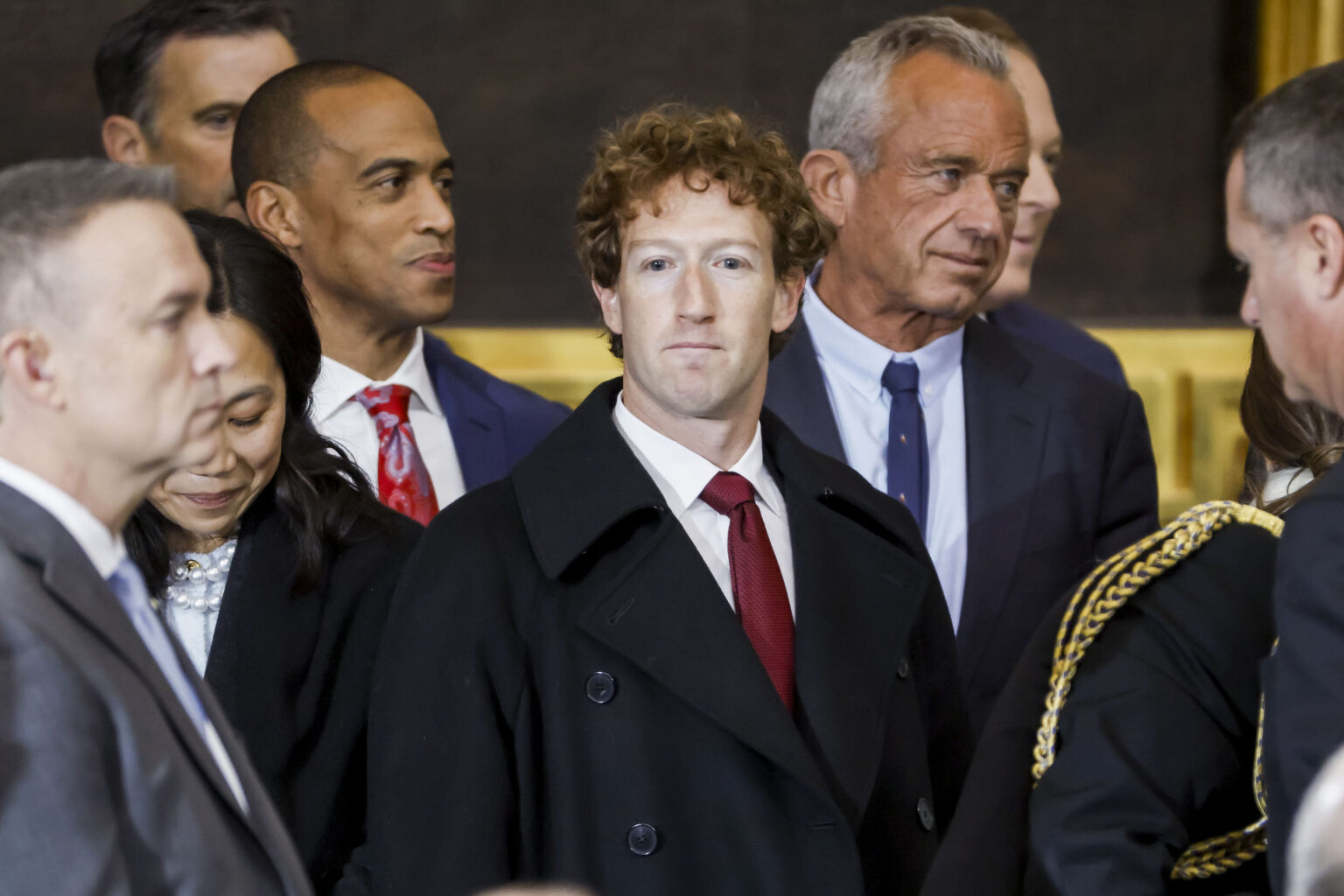Less than two weeks before the start of a landmark antitrust trial against tech giant Meta, the growing relationship between President Donald Trump and Meta CEO Mark Zuckerberg is stoking fears in Washington that the White House could pull the plug on the whole case.
The trial, scheduled for April 14, is the culmination of a nearly six-year investigation and legal battle. Launched by the Federal Trade Commission during Trump’s first term and advanced by former President Joe Biden’s antitrust enforcers, it could ultimately force Meta to sell off Instagram and WhatsApp — a colossally expensive and complex maneuver that would effectively dismantle the $1.3 trillion company.
The FTC rarely abandons an ongoing antitrust case, regardless of who’s in the White House.
But a series of events over the past week has the Washington antitrust world buzzing about the fate of the case — worried that the tech industry’s new closeness with Trump, and specifically Meta’s rapid-fire concessions to Republicans over the past few months, could pay dividends by eliminating Washington’s threat to break up the social media giant.
On Wednesday, Zuckerberg unexpectedly sat down with Trump in the Oval Office, reportedly to appeal for a settlement of the antitrust case.
That same day, FTC Chair Andrew Ferguson, now in charge of the case, told reporters at an event that the agency was “raring to go” against Meta. Then, asked directly if he would drop the case at Trump’s direction, he said he would “obey lawful orders” — and otherwise refused to entertain the hypothetical.
Trump gave Ferguson unilateral power over the FTC’s decisions by abruptly firing the agency’s two Democratic commissioners in mid-March — an unprecedented move that clears the way for Ferguson and his sole GOP colleague to make partisan decisions with no Democratic opposition.
FTC spokespeople did not respond when asked to comment on concerns that Trump could order Ferguson to drop the Meta case, or if there had been any communications between Ferguson and Trump on the issue.
Doha Mekki, a former Department of Justice antitrust official who served in the first Trump term as well as under Biden, said it was “worrisome” that Zuckerberg had met directly with Trump, “on the eve of trial, no less.”
Asked about Wednesday’s sit-down, Meta spokesperson Andy Stone said Zuckerberg is “continuing the meetings he’s been holding with the administration on American technology leadership.”
He would not say if the upcoming FTC trial was discussed.
A White House spokesperson did not respond to questions asking whether Trump would try to force FTC Chair Andrew Ferguson into a settlement, or what the president would ask from Meta in return.
Under the old rules of Washington, a pullback on the case shouldn’t even be possible. The FTC has a long history of operating independently of the White House.
But when Trump fired the agency’s two Democratic commissioners last month, he cleared the way for the FTC’s remaining two Republicans to withdraw the Meta case or enter into a settlement at his request.
“Each of those would require commission action, and so you would need to take a vote,” former FTC Chair Lina Khan told reporters at an antitrust summit convened by the venture-capital firm Y Combinator on Wednesday. “It is still messy, but it definitely eases the path for them to do something like that.”
“Facebook would prefer this case just went away very conveniently, so I wouldn’t be surprised if there was pressure being applied,” said Khan.
📣
Her concerns were echoed by an unlikely ally who also spoke at the summit — Steve Bannon, the influential far-right figure who served as Trump’s chief strategist during his first term.
“This is not a random event that Zuckerberg happens to be in the Oval Office while this thing’s being done,” Bannon told reporters on Wednesday.
While expressing hope that Trump won’t cave, he said the president is “under tremendous pressure [from] Big Tech oligarchs.”
“It’s a constant battle,” said Bannon.
As with many issues around Big Tech, the Meta case has the potential to divide Republicans — while many still see the big platforms as convenient political targets, they’re also reveling in the new friendliness of CEOs like Zuckerberg.
The social media giant’s recent about-face on a number of issues where it once clashed with Republicans suggests Meta is willing to dramatically alter its policies to appease the president and the GOP.
Once despised by Trump and other Republicans for his alleged pro-liberal bias, Zuckerberg over the last several months has apologized for removing Covid-19 disinformation and downplaying posts about Hunter Biden’s laptop, elevated long-time Republicans Joel Kaplan and Kevin Martin to serve as his top lobbyists, ditched the company’s fact-checking program, donated $1 million to Trump’s inaugural fund and hosted an inauguration party for the president.

